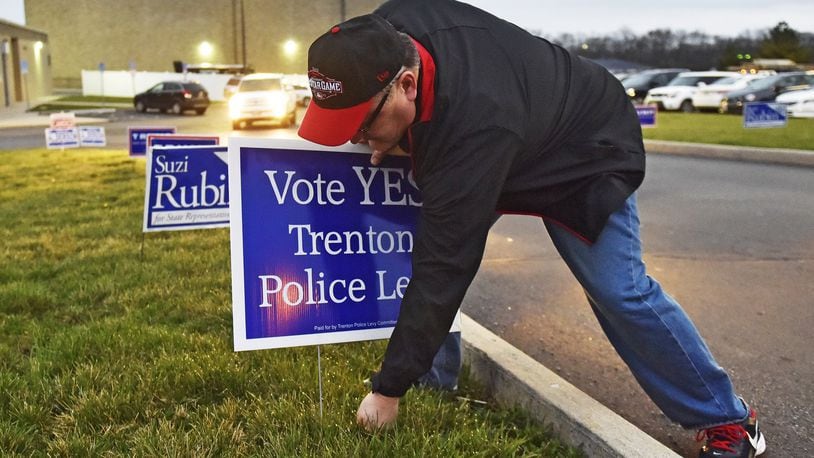“The big difference-maker is pulling the police department out of the general fund to its own fund,” said Treasurer Mike Engel.
The police fund appropriation is just over $2 million and some general fund monies will still be used to support police. Voters overwhelmingly approved the 5.25 mill permanent levy in March by a 60-to-40 percent margin. The primary purpose of the levy was to hire five new police officers over time, including one who will be a member of the Butler County Drug Task Force.
Some of the $897,000 generated by the levy will also replace or upgrade equipment like police cruisers, some of which are more than 10 years old.
Police Chief Arthur Scott estimated the levy would cost the owner of a $100,000 home about 50 cents a day or roughly $180 a year. The funds won’t begin “trickling in” until January, according to City Manager John Jones, but the city council in August approved hiring one office and purchasing a cruiser and equipment for the officer.
Engel said they will likely bring another officer on in the Spring and the Fall and then the rest in 2018.
“They are going to spread that out and stagger it so they can properly train each officer as they come on board,” Engel said.
Engel said income taxes, which fuel the general fund continue to rise and the total general fund revenues were estimated at at just over $3 million which is a seven percent hike over this year.
Jones said the increase is nice but the city is still considerably behind revenues they were seeing a decade ago, yet the city has grown 37 percent in that time frame. Jones and Engel both blamed property and income taxes that were decimated by the Great Recession and deep state funding cuts.
“Our revenues overall in the general fund are still hundreds of thousands of dollars short of where they were five, six, seven, eight, nine years ago,” Jones said. “We’re way behind what were were several years ago.”
About the Author
